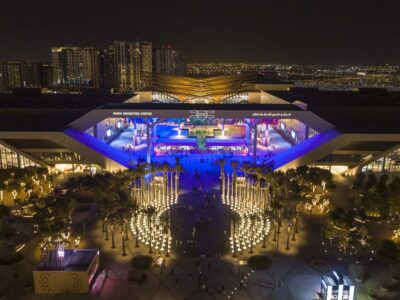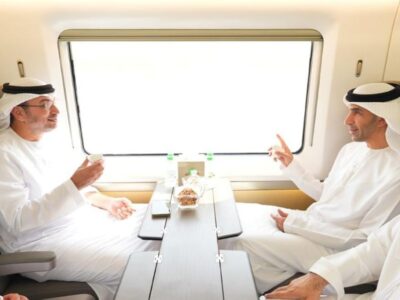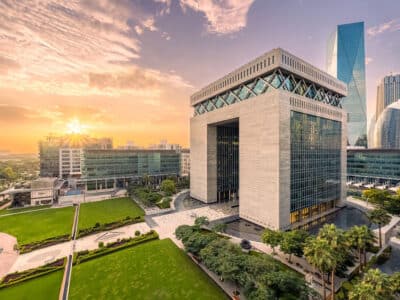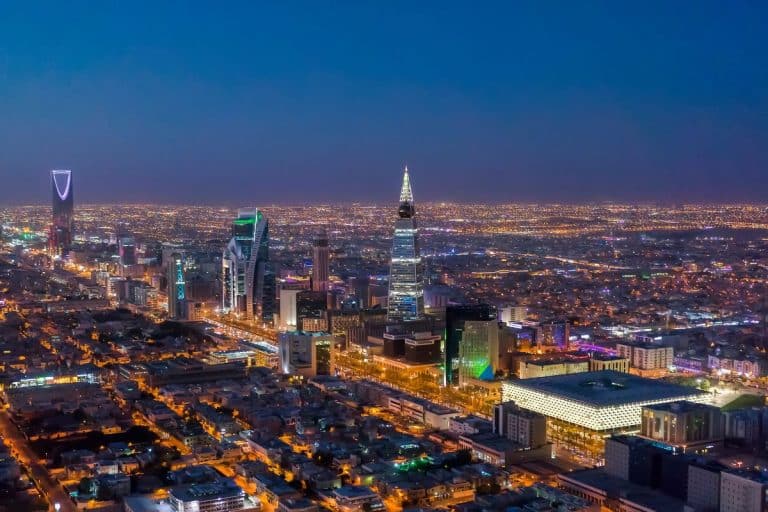Saudi Arabia’s 2021 mandate requiring foreign firms to establish local headquarters by the end of 2023 or risk losing out on lucrative government contracts has prompted an influx of expats to the kingdom. But the growing pains of this migration have become evident, as the shortage of suitable accommodations has emerged as a major concern among new and incoming residents.
Recognising this demand, several residential real estate projects are already in the works, an expert told Arabian Business. However, these projects are still under development and will need more time before they are ready for expats to move into.
“The demand and supply for properties are slightly mismatched,” said Faisal Durrani, Partner and Head of Middle East Research at real estate consultancy Knight Frank.
“A lot of expats are moving to the Kingdom and they’re looking for accommodation, but we have to remember that historically, the focus has always been on larger properties like larger apartments and villas because that is what the Saudi population has historically wanted – to live in a large family home.”
A “significant amount of residential development” is needed “to cope with the project population growth,” said Durrani, which is set to at least double. In Riyadh, the population is expected to grow from 7.5 million today to around 17 to 18 million by the end of the decade.
“Over 500,000 units are being planned at the moment across the whole country,” he said. “For context, Dubai has 600,000 residential units today so we are basically talking about building a city the size of Dubai in the next seven years in Saudi, across the whole country. It’s an ambitious target but it highlights the shorting of housing that’s available.”
The Saudi government has committed more than $1 trillion to date into infrastructure projects to cope with this demand, but expats who recently moved to Saudi Arabia told Arabian Business that finding a suitable apartment has presented itself as a formidable challenge.
Some expats have attempted to begin their search before their move to Riyadh, to no avail.
Interior architecture manager Yasmine K., 33, is moving to Riyadh next month and is yet to find an apartment.
“I have already started to look for housing but my employer is providing 1 month hotel accommodation so I will need to find an apartment in two months from now,” she said.
“I started looking for apartments online, because this is how we usually do it in Dubai, but I found it was not that easy. I haven’t been able to find anything.”
Her friend who already lives there had told her that searching for a property online is not effective and that she should deal with a broker instead.
“I just recently started contacting this broker two days ago and I will see how it goes but I am already seeing a massive difference between Riyadh and Dubai in terms of ease in finding an apartment. I haven’t been to Riyadh yet so I don’t know how life is going to be, I don’t know much about the real estate there.”
Meanwhile, others have opted to embark on their housing hunt once they have moved and have settled in a hotel paid for by their employer for the first month – a common practice among expat workers and consultants in Saudi Arabia.
A 33-year-old Egyptian media professional based in Riyadh told Arabian Business under the condition of anonymity that he struggled to find an apartment that suited his needs. Instead, he ended up opting for a 3 bedroom apartment on the second floor of a villa, for just himself.
“I didn’t find the same facilities like what I had in Dubai. I used to live in a tower with a gym, pool and underground parking back in Dubai but I searched a lot here and did not find what I wanted exactly. I searched a lot, but from the viewings I realised they did not have the same style of buildings,” he said.
He added that despite this, there are some advantages to living in Saudi Arabia, one of them being the fact that his 3 bedroom apartment is costing him less than a 1 bedroom in Dubai.
His rent in Saudi is around SAR 33,000 per year whereas the 1 bedroom he used to live in in Dubai used to cost him AED 52,000 and was significantly smaller.
Cultural shift, rising house prices in Saudi Arabia
Knight Frank’s Durrani explained that there has been a cultural shift in Saudi Arabia, with household sizes declining and it becoming more culturally acceptable to live with family in an apartment rather than a large villa.
“Slightly more footloose Saudis” are moving out of their homes earlier than ever before, said Durrani, due to better job opportunities in different cities within the kingdom.
Younger Saudis “are not necessarily looking for large apartments or large villas when they’re going to be temporarily resident in another city,” he said, referring to the company’s 2023 Saudi Report which found that 68 percent of the respondents surveyed for the research considered themselves to be temporarily resident in the cities in which they lived and worked.
Knight Frank’s research highlighted that 62 percent of these 1,000 Saudi nationals who were surveyed for the report said they would rather rent than buy. Aside from temporary residence, factors like rising housing prices have contributed to this shift.
“Affordability issues have obviously contributed to this with the fact that we have a young, mostly internationally educated population that has lived abroad and is coming back,” Durrani said.
“They want residential communities with shared facilities and amenities. That concept is relatively new to the kingdom outside of the Western compounds that have existed historically. You now have young Saudis demanding the same thing. We are beginning to see developers responding [to these demands].”
Property prices have risen significantly in major Saudi cities like Riyadh and Jeddah, making it difficult for people whose incomes have not been adjusted over the years to afford.
Despite a recent decline in the number of Saudis looking to buy homes due to affordability issues, the government has a homeownership target of 70 percent by the end of the decade.
The last time house prices peaked in Saudi Arabia was in 2016, which was when the national transformation plan was launched. Several global issues have occurred since then, the COVID-19 pandemic being the most significant one which led to a decline in house prices globally. But prices have noticeably begun to climb again.
While apartments in Riyadh now cost 4.2 times the annual household income (up from 3.3x in 2016), villas in the city cost 13.3 times as much. Villas in Jeddah, however, have become slightly more affordable since 2016, costing 15 times the annual household income.
“Riyadh apartments and villas are now the most expensive they’ve ever been. This is record pricing. And the last time we were in this kind of record pricing territory was the market peak. So we’re not suggesting that we are at a peak of the market. What we are saying instead is that prices will probably have to stabilise for some time. Because the demand doesn’t look like it’s going to diminish anytime soon.”






